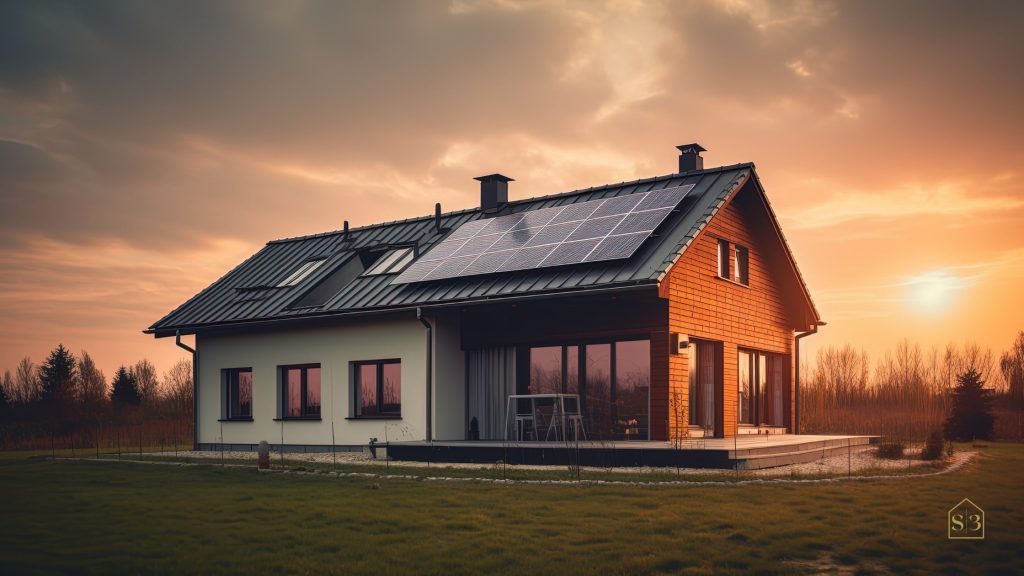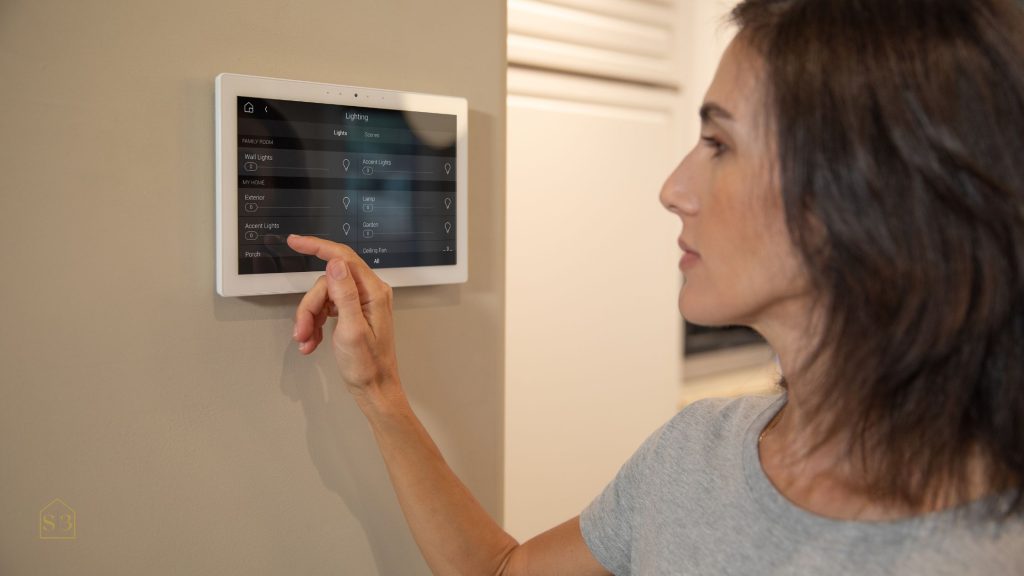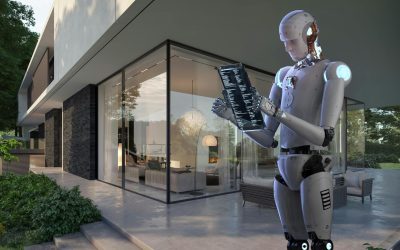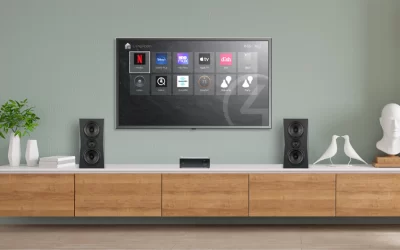The Future of AI in Custom-Installed Home Automation: What to Expect in Europe
Introduction
Living between bustling Budapest and the serene Hungarian countryside has given me a unique perspective on home automation. As my husband, Andrew, is a highly experienced technology architect, I have firsthand experience with the transformative power of custom-installed systems. Our Control4 setup is the heart of our home, whether we’re hosting a dinner party with custom lighting or enjoying our outdoor cinema. In my work, I’ve seen how AI is reshaping home automation, and I’m excited about the future. This post explores the advancements we can expect in AI-driven home automation, focusing on the benefits and challenges in Europe.
The Evolution of AI in Home Automation
Custom-Installed Control Systems: Control4, Crestron, and Savant
Top-tier control systems like Control4, Crestron, and Savant are leading the charge in integrating AI into home automation. These systems are becoming smarter, more intuitive, and capable of offering a seamless user experience.
- Control4: Known for its robust integration capabilities, Control4 is leveraging AI to enhance user personalisation and security automation routines with Luma Insights.
- Crestron: Crestron has announced the new AI-powered PTZ camera series, the 1 Beyond, designed to address the challenges of modern hybrid meetings.
- Savant: Savant’s AI engine has been designed to interpret natural language from Siri, as well as triggers from AirTags, near-filed communications (NFC) tags and geofencing, to easily control entertainment, comfort, lighting, energy, and security throughout the entire home.
The Role of AI in Customisation
AI allows these systems to learn from user behaviour, offering a level of customisation that was previously unimaginable. By analysing patterns and preferences, AI can create a truly personalised home environment, adjusting lighting, climate, security, and entertainment systems in real time.

The smart home automation market is rapidly growing, with the global market value projected to exceed $1,335.89 billion by 2029. This growth is driven by advances in AI and machine learning, which enhance the efficiency, convenience, and security of smart home systems (Dataconomy).
The Future of AI-Driven Home Automation
Enhanced Personalisation and User Experience
AI will take personalisation to new heights. Future systems will anticipate user needs and preferences with greater accuracy. For instance, your home could automatically adjust lighting and temperature based on local real-time energy costs or even suggest meals based on your dietary habits and the contents of your refrigerator.
Predictive and Preventative Maintenance
AI will enable predictive maintenance, monitoring the health of home systems and appliances to prevent breakdowns before they occur. This will save homeowners from costly repairs and improve the longevity of their systems. For example, AI could alert you when your HVAC system needs servicing or if a minor issue in your plumbing system could lead to a major problem.
Advanced Security Features
Security systems will become smarter and more proactive. AI will enhance facial recognition technology, allowing for more accurate and secure access control. It will also improve threat detection by analysing patterns and identifying unusual activities, providing real-time alerts and responses. In Europe, where security concerns vary, this advanced level of protection will be invaluable.
Energy Management and Sustainability
AI will play a crucial role in managing energy consumption more efficiently. Future systems will optimise the use of renewable energy sources, such as solar panels and wind turbines, ensuring homes are as energy-efficient as possible. AI can also adjust energy usage based on real-time data, reducing waste and lowering utility bills.
Advantages of AI in Custom-Installed Home Automation
Increased Efficiency and Convenience
AI-driven systems will streamline daily tasks and make home management more efficient. From automating routine tasks to providing intuitive controls, AI will enhance the overall convenience of living in a smart home.
Improved Comfort and Lifestyle
By learning from user habits, AI can create a more comfortable and personalised living environment. Whether it’s adjusting the thermostat before you wake up or setting the perfect ambiance for a dinner party, AI will enhance your lifestyle in countless ways.
Enhanced Security and Peace of Mind
Advanced security features powered by AI will offer better protection and peace of mind. AI’s ability to monitor and analyse real-time data means your home will always be on guard, ready to alert you to any potential threats.
Environmental Benefits
AI’s ability to optimise energy usage will contribute to more sustainable living. By integrating with renewable energy sources and reducing waste, AI-driven home automation systems will help reduce the environmental footprint of homes.

Building automation systems in Europe are expected to achieve an average net energy savings of about 37% for space heating, water heating, cooling, and ventilation, and 25% for lighting.
Disadvantages and Challenges of AI in Home Automation
Privacy and Security Concerns
The integration of AI raises significant privacy and security concerns. With AI systems collecting vast amounts of data, there is an increased risk of cyber-attacks and data breaches. Ensuring robust security measures and maintaining user privacy will be critical challenges.
High Costs and Complexity
The initial investment in AI-driven custom-installed systems can be substantial. The complexity of these systems also means they require professional installation and ongoing maintenance, which can be costly and time-consuming.
Dependence on Technology and Internet Connectivity
AI systems are heavily reliant on internet connectivity. In areas with unreliable or slow internet, this can pose a significant drawback. Moreover, there is a risk of becoming overly dependent on technology, which can lead to issues if systems fail or encounter problems.
Rapid Technological Advancements
The fast pace of technological advancements means that today’s cutting-edge systems can quickly become outdated. Keeping up with the latest developments requires continuous investment and adaptation, which can be challenging for homeowners and professionals alike.
The European Context: Opportunities and Challenges
Diverse Architectural Styles and Regulations
Europe’s diverse architectural styles and regulatory environments present unique opportunities and challenges for AI-driven home automation. Custom-installed systems must be adaptable to different types of homes, from historic buildings to modern apartments, and comply with various local regulations.
Growing Demand for Smart and Sustainable Homes
There is a growing demand for smart and sustainable homes in Europe. Homeowners are increasingly looking for solutions that enhance their living experience while reducing their environmental impact. AI-driven systems that offer energy management and integration with renewable energy sources will be particularly attractive.
The Importance of Interoperability
Interoperability will be crucial in the European market. With a wide range of devices and systems available, ensuring that AI-driven home automation systems can seamlessly integrate with other technologies will be essential for their success.

Effortlessly transforming her home ambiance, this user adjusts her smart lighting with a Control4 in-wall touch screen. As AI in home automation evolves, personalised and efficient living becomes the standard, enhancing comfort, security, and sustainability.
The Future Landscape of AI in Home Automation
AI and Machine Learning Advancements
Advancements in AI and machine learning will continue to drive innovation in home automation. Future systems will be more intelligent, capable of handling complex tasks with minimal user intervention. This will further enhance the convenience and efficiency of smart homes.
Integration with Smart Cities and IoT
The integration of home automation with broader smart city initiatives and the Internet of Things (IoT) will create new possibilities. Homes will become part of a larger ecosystem, where AI-driven systems communicate with urban infrastructure to optimise energy usage, traffic flow, and public services.
Regulatory and Ethical Considerations
As AI-driven home automation becomes more prevalent, regulatory and ethical considerations will come to the forefront. Ensuring that these systems are secure, private, and used ethically will be essential for their widespread adoption and success.
Customisation and Personalisation
The future will see even greater levels of customisation and personalisation in home automation. AI systems will offer bespoke solutions tailored to individual needs and preferences, making homes more comfortable, efficient, and enjoyable.
Conclusion
As someone who splits their time between the vibrant city life of Budapest and the tranquillity of a countryside vineyard, I’ve seen the immense value that AI in custom-installed home automation can bring. Our Control4 system, with its custom lighting and streaming music services, enhances every aspect of our lifestyle, from entertaining guests to enjoying a quiet movie night under the stars. The future of AI in custom-installed home automation promises even more.
Custom-installed control systems are at the forefront, leveraging AI to offer unprecedented levels of personalisation, efficiency, and security. While challenges such as privacy concerns, high costs, and technological dependency exist, the benefits far outweigh the drawbacks.
In Europe, the demand for smart, sustainable, and personalised homes is growing. By staying informed about the latest trends and advancements, homeowners and industry professionals can ensure they are well-prepared to embrace this exciting future. With the continuous evolution of AI, the possibilities for creating smarter, more efficient, and sustainable living environments are limitless.
If you’re ready to elevate your home with the latest in AI-driven automation, contact S3 Europe today. Let’s create a smarter, more comfortable, and efficient living space together.



0 Comments